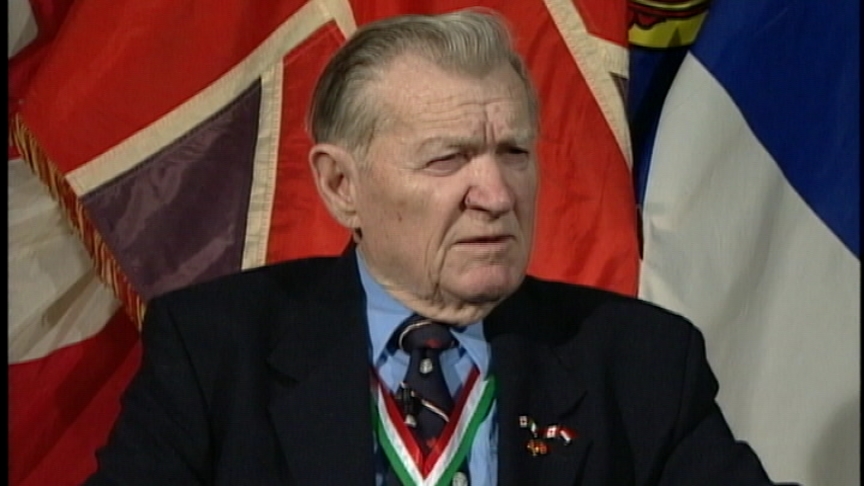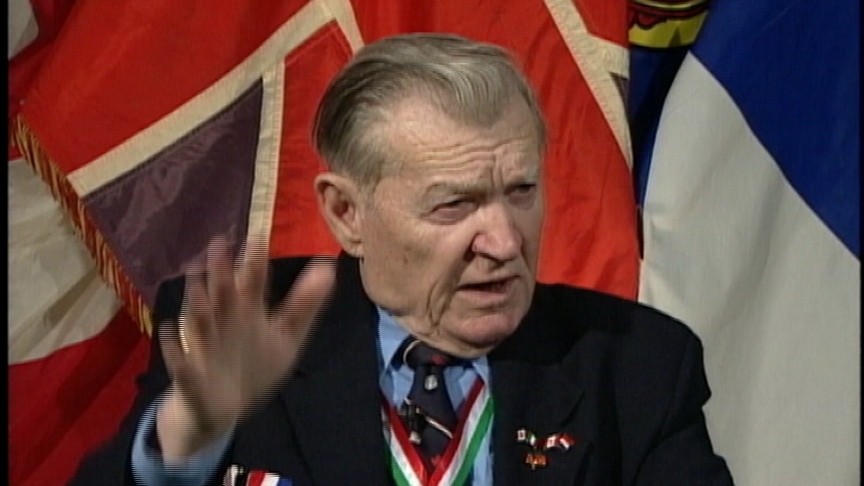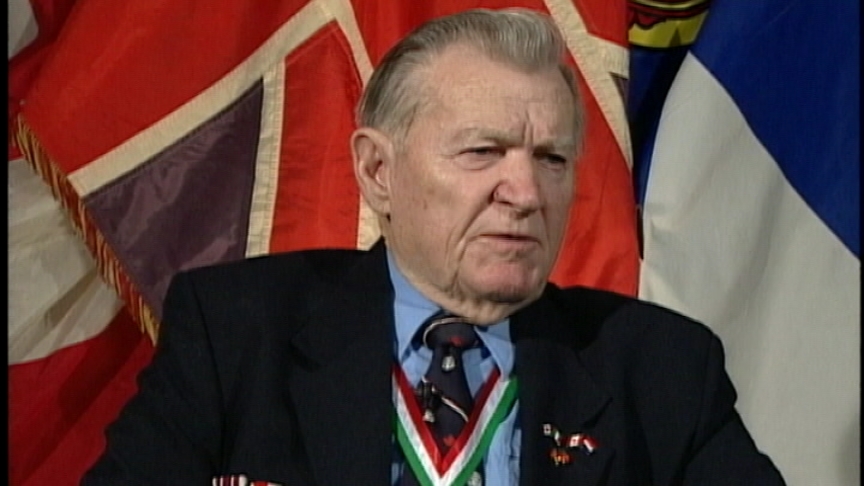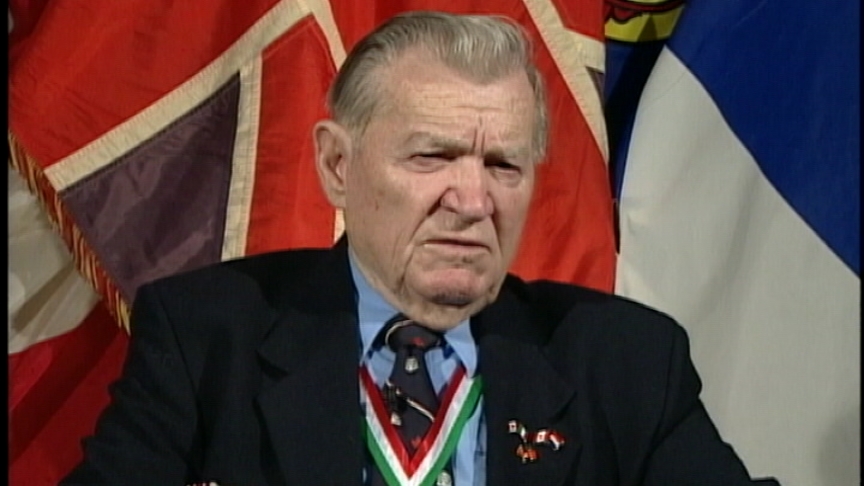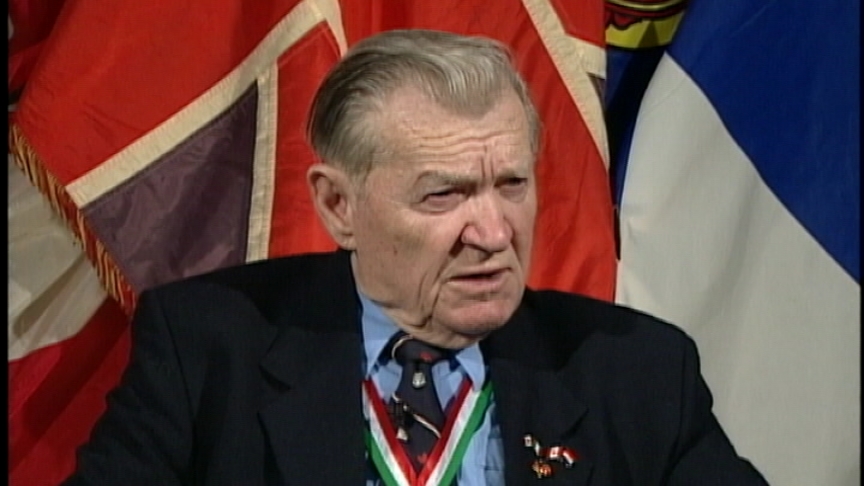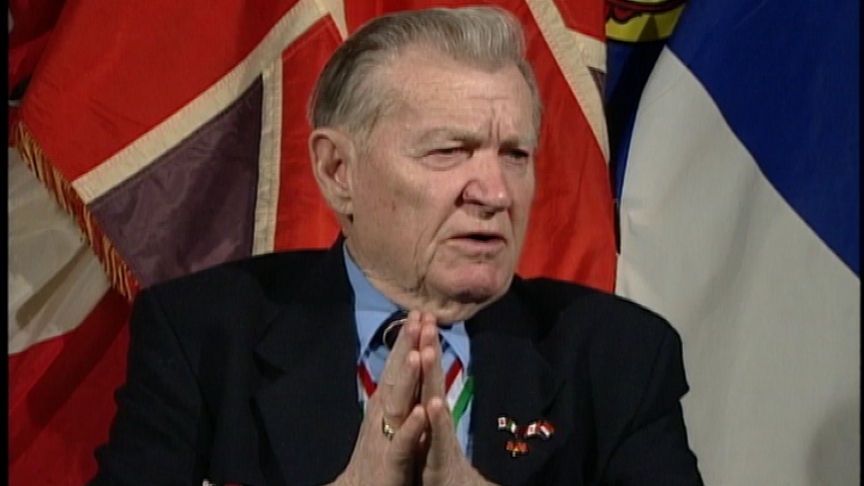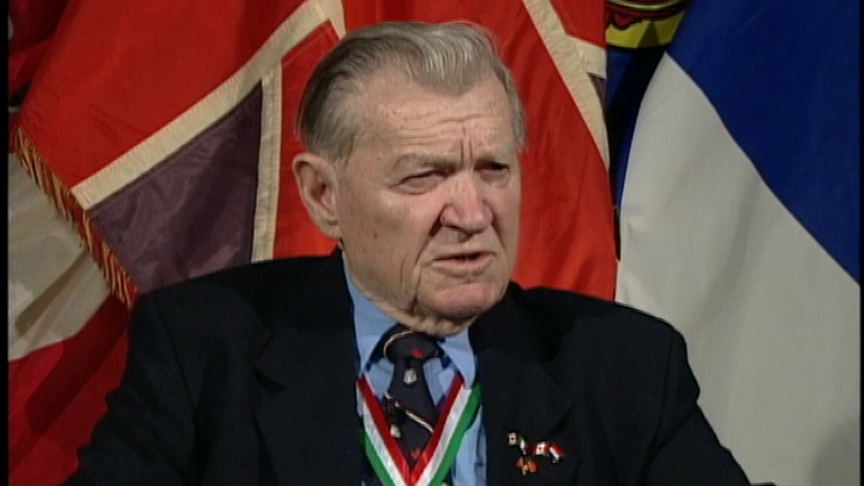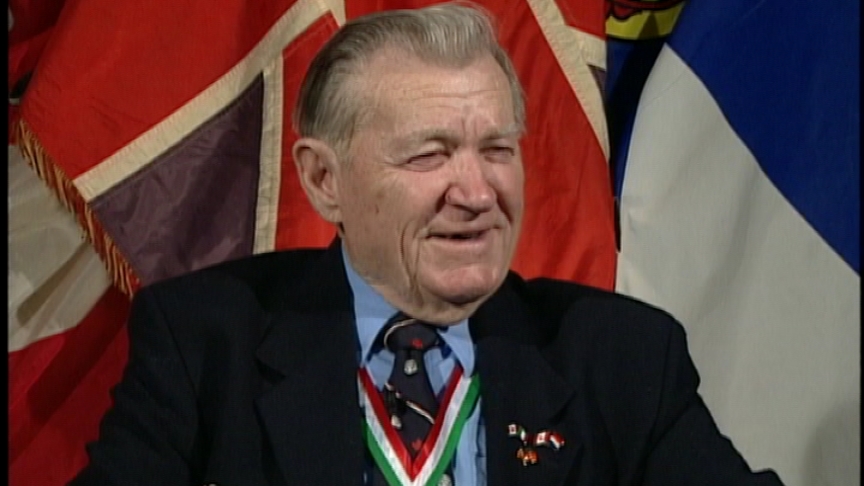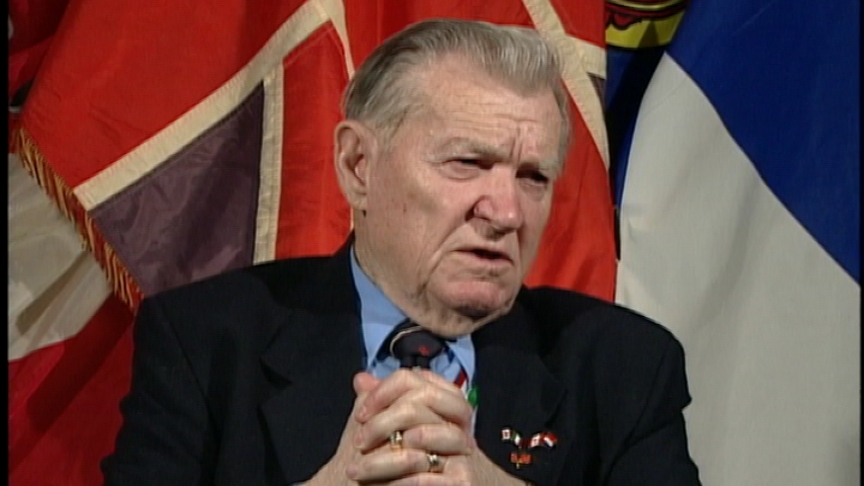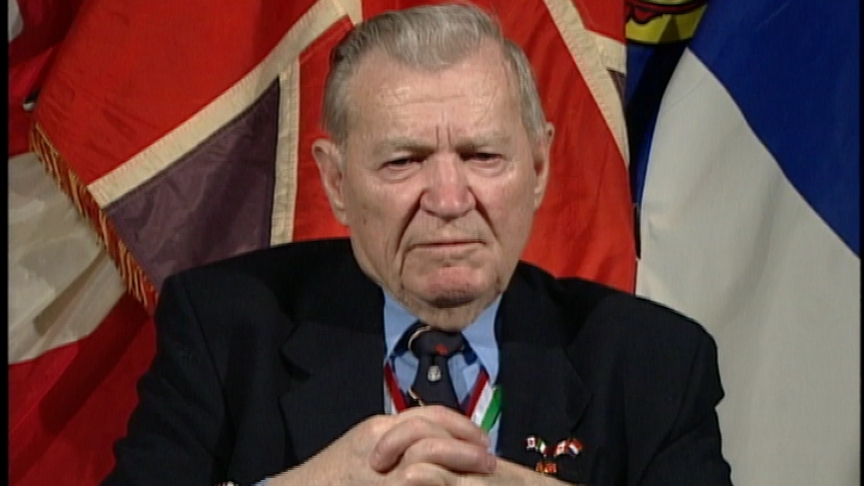Was the Second World War Worth Fighting?
Heroes Remember
Was the Second World War Worth Fighting?
Yes, in that war. It was worth it in that war, because that was
a just war. You know, like some of the wars that are going on
now, I don't know how you're going to find some way of solving
problems without killing some foreign afield. But the war
against Germany was a, was a, you just couldn't let that go on,
the slaughter and the six million Jews gone. And the way the
elderly and the infirmed. So you know, everybody was happy to go.
You have to try to avoid war at all costs. But if it's a just
war, and we're living in the best country in the world, you'd
have to defend it. You would have to go. We fought a just war
and, from 1939 to ‘45, there was no way that you could let,
allow what was taking place to happen. But I see wars after that
you know, just political and unfortunately that's what happens,
the Second World War was a lot of politics in it too eh. You
know. We lost a lot of men you know, you had Montgomery is a
fine general, Patton and they were in a race to beat one another
and you lost men needlessly, just to satisfy their ego. And
Antwerp was another example of it when, or General Simmonds
wanted to follow the Germans and Montgomery stopped him, give
the Germans two or three days to get set up, lost a lot of men
for nothing. It was all politics. And then when our Canadians
were told to halt before they got to Rome to let Mark Clark go
through with the Americans taking Rome without firing a shot,
you know, it kind of disgusts you. They want the glory,
they didn't want to fight the war.
Related Videos
- Date modified:



